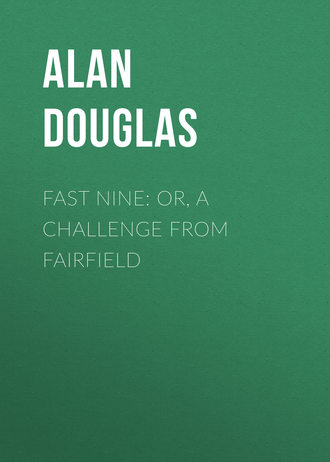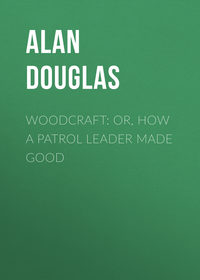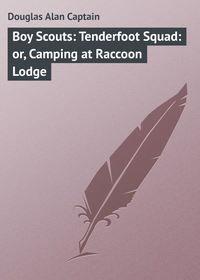 полная версия
полная версияFast Nine: or, A Challenge from Fairfield
A sudden thought struck him so forcibly that it sent a shiver through his whole body. What was that the colonel had said over the wire about the two men whom he had had arrested on a charge of stealing his prize fruit, getting away from the poorly guarded lock up in town?
Could it be possible that these shadowy figures were those same rascals; and had they come to the home of Colonel Hitchins, determined after their lawless way, to get even with him for having caused them to suffer a short time in the jail?
Elmer could feel his heart beating like mad as he watched them drawing nearer and nearer.
CHAPTER IX.
FAITHFUL TO HIS FRIEND
Now they had stopped again, and seemed to be conferring in whispers.
If Elmer had had the least doubt before concerning their evil intentions, it was no longer in evidence. Honest men do not creep around the house of a rich man at such an hour of the night, and put their heads close together.
He flattened himself out on the ground, having dropped like a stone, though without the least noise.
"How lucky that I happened to come along this way!" was the thought that seemed uppermost in the mind of the scout as he crouched there, waiting. "If my wheel had stayed all right I would have been far away right now, and never known a thing about this. And it was that tool house that made me go around to the back."
He even grew bolder, and began to speculate as to how he might creep closer to the pair. If he could only overhear what they were saying, it might help more than a little. And, somehow, his desire to be of some assistance to his good friend the colonel, urged him to make the attempt.
To an ordinary lad it might have seemed an impossible task, for in his clumsiness he must certainly have made some sort of sounds calculated to arouse the suspicions of the men.
Elmer's experiences in the Canadian Northwest had proven of great value to him ever since he joined the Boy Scouts. And when he started to creep forward, it was with some of the stealth of the cat gliding toward a coveted dinner in the shape of a feeding sparrow.
As he covered several yards of territory, Elmer noticed that he quickly began to catch the sound of conversation. The men were talking low, but one of them had a harsh voice, and while this had come to Elmer at first as an indistinct murmur, presently he began to catch distinct words.
Having attained a place behind another bush, where he could have tossed a pebble and touched the two fellows, had he been of a mind, he strained his ears to catch the tenor of their earnest talk.
The man with the husky voice seemed to be scolding his companion, and accusing him of being either timid or over-particular.
"But ye was jest as dead set on doin' it as I was, Con Stebbins; an' now that we got the chanct ye show signs o' the white feather. Brace up, an' lets git busy!" he was growling.
"Aw! what's eatin' ye, Phil?" the other remarked, with a whine. "I'd like tuh do the job jest as much as yerself; but what if we got ketched? It'd mean a long time in the pen, Phil."
"I tell you we ain't agoin' to be caught," declared the heavier of the two, in an angry tone. "Ain't I aknowin' the ropes here; didn't I uster work for the kunnel as a gardener? That's what made me so crazy mad when he had me locked up, jest because we went and took some o' his ole peaches, an' sold 'em so's to get the hard stuff."
"But how d'ye know the dorg ain't goin' tuh git back an' tackle us while we're adoin' the job?" demanded the whining Con.
"Didn't I tell ye that Bruno knows me, an' that when I kim hyar an hour back I let him loose?" declared the heavy-set man, warmly.
"But he might come back any ole time," protested the other.
"He ain't goin' tuh," declared Phil. "I orter know his ways right well. Every time he breaks loose he stays away the hull blessed night. It's a picnic fur the dorg. Reckon he's got some friends he visits, an' has a few scraps. Jest ye forgit there is sech a thing as a dorg, and leave it tuh me to fix the game like we wants it."
"Huh! ye sed as how ye knowed jest how the game cud be worked, didn't ye, Phil?" went on the taller man, nervously.
"Sure I did. All ye got tuh do is to foller me. I'm willin' tuh take the lead. Yuh sed as how yuh had matches along, didn't yuh, Con?"
"Plenty of 'em, Phil," mumbled the other.
"That's good. All yuh has tuh do is to strike a match, and then drop it! I wants tuh make sure both of us has a hand in it, that's all. Now, are yuh ready to move along, Con?" asked the shorter scoundrel.
The other seemed to want to take one more nervous look around before consenting. Undoubtedly his nerve had failed him in the critical test, and he was now being actually dragged into the thing by his more determined and vindictive partner.
Elmer had been thrilled by what he heard. When he caught the significant word "matches" the terrible truth flashed upon him, and he realized that these rascals, bent on revenge on the colonel because of their recent arrest, meant to set fire to either the stables or the mansion itself.
In either event it was a dreadful thing. No wonder the boy grew cold, and then hot alternately. But he did not flinch. Elmer was made of good stuff, and such an emergency as this called it out.
He shut his teeth so hard together that he could hear the gritting sound, and so excited was he at the moment, that he wondered whether either of the men could have sharp enough hearing to have detected the noise which to his aroused fancy appeared like the creaking of a seldom-used door.
But they gave no sign of any suspicion. Con seemed to have recovered a little of his lost grit, and was allowing the ex-employee of Colonel Hitchins to draw him along again. They made progress slowly, stealthily keeping in the densest shadows, and at times almost creeping on their knees.
"What shall I do?"
That was the thought that flashed through the mind of the boy as he watched the pair of intended incendiaries moving off. He could shout, and thus arouse the house; or after they had gone it was within his power to hasten back to the door, and demand admittance.
Doubtless the colonel would still be in his library, for he seldom retired before midnight, Elmer knew. And once he found a chance to communicate the terrible news to the owner of the place, prompt means could easily be taken for preventing the incendiary fire.
Then, while he was trying to decide which of these courses might prove best, a sudden inspiration assailed the boy. It was, of course, born of his former experiences among the "men who do things" on the broad plains. Another lad would never had dreamed of such a bold course; or even had it appealed to him, he must have quickly decided against undertaking so hazardous an attempt to balk the wicked designs of these rascals.
But to Elmer it appealed irresistibly. He believed he could do it, given half a chance. And, unable to resist the temptation, he began to creep after the two shadowy figures, now almost beyond range of his vision.
He noticed that they were passing around the house. This would indicate that they expected making their attack from the rear. Phil had worked on these grounds, and apparently knew every foot of the estate. Possibly he may, as he said, have been a gardener to Colonel Hitchins; Elmer faintly remembered some man of about his squatty figure, whom he had seen trimming hedges, and working among the flowers early in the spring.
All at once the boy had a new thrill. They were certainly headed straight for the very tool house where he had left his wheel! Doubtless there must be some particular object in this action on the part of Phil. Did he wish to secure some sort of tool to be used in furthering his evil designs?
"Oh!"
This exclamation was forced from Elmer's lips when he suddenly remembered something; but fortunately it was hushed to a whisper.
"That was kerosene I smelled when I was putting my wheel away," he said to himself. "Perhaps there is a barrel of it kept in that place for use about the house, or making an emulsion to kill insects on the trees and rose bushes! And Phil knows all about it if he used to be the gardener here. He also knows that the door of the tool house is never locked, but just fastened by a staple, a hasp, and that big nail held by a cord."
If, as seemed probable, the two men were bent on starting a fire that would, according to their evil way of thinking, pay the colonel back for their recent arrest, one of the first agencies for making a fierce blaze that Phil would be apt to think of must be that kerosene. It seems to appeal to every rogue who means to become an incendiary.
Elmer did not halt his footsteps. The terrible truth had thrilled, but not dismayed him. He was, in fact, more determined than ever to balk these villains in their intended work; though just why he kept on after them, when by rights he should have made direct for the front door of the house, Elmer was never able to explain to his own satisfaction. Some subtle power seemed to just pull him along as though he were being drawn by a powerful magnet which he could not successfully resist.
Yes, there could not be the slightest doubt now but that his guess was the true one; for just ahead he could see looming up the dark outlines of a building which he knew full well must be the tool house.
Again the men were whispering together, and the harsher tones of Phil seemed to breathe threatenings of some sort. Evidently the more timid Con was weakening once more, and had to be pulled on. His desire for revenge was doubtless quite as strong as that of his companion; but he lacked the bull-dog courage to put his evil designs into execution.
"Oh! if they would only both go inside that tool house!" Elmer was saying to himself exultantly, as a wonderful possibility flashed before his mind.
Phil evidently wanted to fully incriminate his companion. It was his desire to make the weaker rascal appear equally guilty with himself. His expressed intention of having the taller fellow strike the match that was to start things going, was ample proof of this.
Would he himself enter the tool house to secure the kerosene? That would leave the timid one outside; and possibly he might seize upon such a golden opportunity to flee.
If Phil suspected him of harboring such an intention, then it was hardly likely that he would allow the other a chance to remain alone. On the contrary, his plan would be to insist upon Con accompanying him in. And that was just what Elmer was hoping would occur; for he had a little plan of his own, which had come into his active mind almost like an inspiration, and which he would then be able to put into practice.
Now they were at the door of the tool house. Elmer was trying to remember just what it looked like. It had a small window, to be sure, but, unless he was mistaken, this had been protected by several stout iron bars, apparently with a view of preventing thieves from entering at some time in the past, when valuable things may have been kept there by the gentleman owning the estate before its purchase by the present occupant.
Yes, Elmer decided in his mind, it was worth a trial. At the worst a failure might only mean the escape of the rascals; and their vicious plot would have been frustrated at least.
He crept closer, still snaking his way along the ground in a fashion that some of his former cowboy friends on the ranch farm three thousand miles away might have recognized as familiar, since they had taught him how to do it.
Con was trying to beg off about entering the tool house, but Phil had overruled his scruples, meeting every objection that was raised.
"Yuh jest got tuh do it, I tell yuh, Con," he finished, angrily. "The thing's in our hands right now, an' yuh promised tuh stick by me. So quit yer hangin' back, an' come along in. I know jest where tuh lay hands on the five-gallon can, an' we kin be out agin in a jiffy. Yuh ain't skeered, be yuh, Con?"
"Aw! course I ain't," whimpered the other, trying to steady his quivering voice, and probably bracing himself up under this accusation which stirred his last drop of courage into life. "Lead off, Phil, an' I'm with ye."
"I'm agoin' tuh make dead sure o' that, Con; that's why I got this grip on your arm. Come right along, the door's open, and nawthin' tuh hinder, see!"
The two shadows passed from Elmer's range of vision. Instantly the boy arose, and darted silently forward. A dozen, yes hardly more than half as many steps, carried him to the tool house. Then, quick as a flash, he prepared to close the heavy door, and fasten it with what means were at hand!
CHAPTER X.
GIVING HIM ANOTHER CHANCE
"Hey! what was that, Con!" Elmer heard the shorter man say, inside the place.
"Oh, we're found out! It's all over, Phil!" gasped the other fellow, in a sudden panic.
"Shut up, yuh fool! Reckon as how 'twar only the night wind. Here's the can; take hold and we'll kerry her out! I jest gotter do it, now!"
That was enough for the boy outside. He understood that they must be at the farther end of the little house, and evidently bending over the object of their solicitude. His chance had come!
Elmer had already taken hold of the door, and laid out his plan of campaign. He expected every act to dovetail with the others, so as to form a complete whole. And not more than two seconds must elapse after he once started to move, before he finished his work.
Slam went the door shut. A low cry from within told how the nervous Con had given expression to his alarm. Utterly regardless of consequences, now that he had made a start, Elmer slapped the hasp over the stout staple, and then feeling for the hanging nail proceeded to drop it into its place.
Things worked like a charm. The nail was shot into place in even less time than Elmer had anticipated. He only hoped that the staples at either end of the hasp were clinched. Then, if the imprisoned men threw their weight against the door, it was not so apt to give.
Elmer did not wait to hear what happened after he had shot his bolt. He expected a great commotion would begin immediately, and the determined Phil start to using any tool upon which his groping hands might alight in the endeavor to batter his way to freedom.
"Now for the house and the colonel!" was what Elmer thought, as, turning, he made a bee line for the front door, out of which he had passed not more than fifteen minutes before.
The first thing he knew he was pounding at the panel, after having pressed the electric button. On either side of the door were long panes of stained glass; and while the boy could not have recognized anyone coming in answer to his summons, he did discover that there was a light within the broad hall. This would tend to prove that the colonel could not have gone up to his room.
Yes, now he could see some one issue from the library, and advance toward the door. Oh, if he would only hurry! From the direction of the tool house came sounds of heavy pounding. Doubtless the imprisoned rascals, fearing that they had been caught in a trap, were trying to smash their way out. What if they should strike a light, and that oil catch on fire! Perhaps there was gasoline stored in the place as well as kerosene!
Now the colonel was unlocking the door. It was something unusual to have such a loud summons beaten upon the panels of his front door; but while some men might have shown signs of timidity, this old traveler, seasoned to adventure, was opening up without the first symptom of alarm.
As the door flew open he looked keenly at the figure before him.
"What, you, Elmer, my boy!" he exclaimed. "Why, what has happened? I hope you did not take a nasty header off your wheel?"
"No, no, sir, it wasn't that!" cried the scout, hardly knowing what to say first, so as to impress the gentleman with the seriousness of the occasion. "Some men – they mean to burn your house – the two who escaped from the lock-up, Phil Lally and Con!"
"What's that?" exclaimed the colonel, stiffening up instantly and showing all the signs that mark the conduct of an old war horse at scenting battle smoke. "How do you know this, my boy?"
"I heard them talking – my wheel was punctured, and I put it in the tool house. Then I followed them. They were going to get kerosene to use. They stepped into the tool house, and I slammed the door shut on them, and fastened it! Listen, sir, that pounding you hear is them trying to get out!"
"Well, well, did I ever!" ejaculated the astonished gentleman. "Wait here just a minute till I can get something."
He turned and ran into his library as though he were nearer thirty years of age than seventy. In the excitement of the moment he had forgotten that time had silvered his head and given him twitches of rheumatism. The colonel was young again, and ready to respond to the call of duty.
Elmer listened. He could hear that terrible pounding keeping up from the back of the house, and understood what it meant. Oh, how he hoped that in the darkness Phil could not see to wield his ax effectively, and might thus fail to cut a way out! For it seemed as though part of the victory would be lost if those two rascals secured their freedom.
Perhaps the colonel was gone a full minute. It seemed ten to the waiting boy, who was wrongly figuring time by the rapid pulsations of his heart.
Then he became aware of the fact that once more the gentleman had joined him, and that he was busily engaged pushing some cartridges into a shotgun he carried.
"Here, Elmer, take this!" he exclaimed, thrusting the weapon into the hands of the scout. "I know you are used to handling firearms, or I wouldn't ask you to do it. Now, come with me, please, and we'll see if we can't influence those two fire-makers to be good!"
Down the steps he ran, so that Elmer was even put to it to keep at his heels. At least the prisoners of the tool house could not have as yet managed to effect their escape, for the battering sounds still continued, accompanied by loud excited cries.
Quickly the two hurried along, until they arrived on the scene of action.
"Look, sir, there's another of them coming!" cried Elmer, pointing to a skulking figure among the bushes, indistinctly seen.
"Here, you, come out of that; we've got you covered, and you can't escape!" exclaimed the colonel, who was gripping something that shone like steel in his right hand, and which Elmer guessed must be a pistol of some sort.
"Don't shoot, kunnel!" cried a quivering voice; "'deed, an' I surrenders, suh! I reckon I's pow'ful glad yuh kim. I's Sam, suh, yuh man Sam! Please don' pull de triggah ob dat gun, Mars Kunnel!"
It was the coachman who had driven Elmer and Mark on the occasion of the latter's being summoned to an interview with the old traveler.
"Here, go and get a lantern at once, Sam, and run for all you're worth!" called the old gentleman. "Meanwhile, the rest of us will surround the tool house, and be ready to give them a volley if they succeed in breaking out!"
Sam had already turned and hurried away toward the stables, where he must have been sitting in his room at the time the row broke out, that drew him toward the scene of the disturbance.
Of course, the last remark of the colonel's had been made with the intention of its being overheard by the men who were fastened inside the outhouse. The sounds of pounding had suddenly ceased as the colored man started to answer the command of the colonel, and those within could easily hear every word uttered.
A silence followed that was only broken by low groans within. Doubtless the more timid rascal was repenting of having been led into this dangerous game of seeking revenge. The dreadful penalty meted out to house burners loomed up before his horrified eyes. The only pity was that he had not allowed himself to see this earlier, and resisted temptation.
"Hello!"
That was Phil calling. His heavy voice seemed to express all the signs of acknowledged defeat. Elmer waited to see what the colonel would do, nor was he kept long in suspense.
"This time you're caught in a trap like a rat, Phil Lally," remarked the old gentleman. "I'm sorry for you, more than sorry for your poor old mother; but since you took to drink this was bound to be your end. It came quicker than I thought, I admit, but you've got nobody to blame save yourself."
An intense silence followed, broken only by occasional low whines from the weaker rascal. Then Phil called out again.
"Well, I reckon yuh speaks only the truth, kunnel. I allers had a job up tuh the time I took tuh drinkin'. Sense then hard luck has follered clost tuh my heels. An' now I sure knows it's got me. I'd like one more chanct tuh try an' do better; but I reckon it's too late, an' I'll have tuh grin an' bear it."
Elmer heard him give a big sigh. Somehow the sound affected the boy more than he would have believed possible. He had supposed that Phil must be just naturally a bad man, wicked all the way through. Now he realized that it all came through his one weakness, a love for strong drink.
The colonel moved up a step closer to the door. Elmer wondered whether he meant to throw open the barrier and hold the two scoundrels up as they came forth. But he mistook the action of the old gentleman.
"Phil!" he said, quietly.
"Yes, sir," answered the gruff tones from within, but no longer filled with a savage brutality, for Elmer could detect a quaver as of strong emotion. Perhaps it may have been the mention of that old mother whose heart would be broken when her boy was sent to prison for a long term. And somehow Elmer found himself hanging on the next words of the gentleman with an eagerness which he could hardly understand – for it seemed to him that a human soul was trembling in the balance.
"Listen to me, Phil," continued the colonel. "What if I gave you one more chance to make good; do you think you could keep your pledge, if you gave it to me, never to take a single drop again as long as you live? Are you strong enough to do this for the sake of that old mother of yours?"
There was an inarticulate sound from within. It might have been Phil talking to himself; but Elmer was more inclined to believe something else – that the strong man was almost overwhelmed by the magnanimity of the gentleman whom he had once served, and whose kindness of the past he had returned so meanly.
"How about it, Phil?" continued the colonel. "Shall I 'phone in to town and have the police come out here to take you into custody, or are you ready to put your signature to a pledge for me to hold?"
"I'll do it, kunnel, I'll do it, and thank yuh a thousand times for the chanct!" broke out the man. "Oh, what a crazy fool I was to go agin the best friend I ever had! I'll sign anything yuh arsks me tuh, an' I'll keep it, too, or die atryin'!"
"I'm glad to hear you say that, Phil," went on the colonel, with a low laugh. "You were a good gardener up to the time you began to booze and neglect your work My new man proved a failure, and I've let him go. The job's open, Phil!"
"For me?" cried the man, as though utterly unable to believe his ears. "D'ye mean, kunnel, yu'd dar take me back agin, arter the way I been actin'?"
"Oh, we'll try and forget all that, Phil. It wasn't you, but the devil you took inside, that made you act that way. And since you're never going to give way to the tempter again I guess I'll risk the chances."
He raised his hand and removed the big nail, just as Sam came running up, bearing a lighted lantern in his ebony grip. As the door opened a figure issued forth. It was the short man, and his head was bowed on his chest, which seemed to be heaving convulsively, either because of his recent exertions with the ax, or through some emotion.
"Is that straight, kunnel, an' do yuh mean to fergive me?" he asked, humbly, as he stood there before the old gentleman.
"For the sake of your old mother, yes, I'm going to give you another chance, Phil. And let's hope you can make good. I'm not one bit afraid, if only you stick to your word. And to prove it, here's my hand!"
The man seized it eagerly. He was shaking with emotion now, and somehow Elmer felt his own eyes grow moist; for he realized that he was looking on one of the tragedies of life right then and there; and the thought that he had had a hand in bringing this finish about, and making the repentance of Phil possible, thrilled the Boy Scout strangely.







